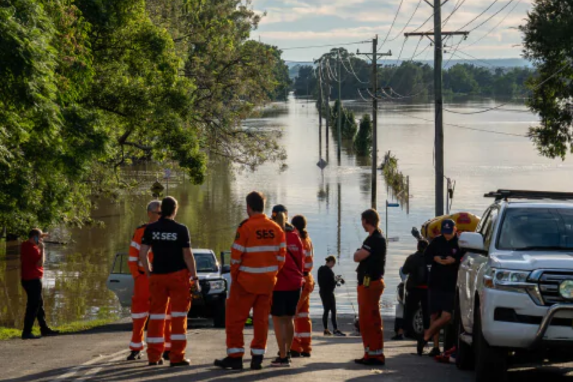In several regions across New Zealand, the Summer months also bring the threat of cyclones. To help prepare businesses and communities, ELGAS has published safety tips for LPG safety during flooding pertaining to safe cylinder storage and use.
LPG safety during flooding and cyclones
Always follow the directions of Emergency Services personnel who are in control throughout the emergency, which may start with an impacting cyclone and continue through flooding.
Before the cyclone or flood hits:
• Make sure all LPG cylinders are closed (clockwise to close the cylinder valve) at the valve on top of the cylinder. Do not disconnect any appliance unless the LPG cylinder is being removed from danger.
• Leave cylinders in the location they were installed. Do not move any LPG cylinder inside buildings, sheds, basements or vehicle. A damaged LPG cylinder may leak, creating a hazardous gas cloud inside the building or vehicle.
• LPG cylinders will easily move in a cyclone, and will be a very buoyant in flood water. It is essential that all LPG cylinders be restrained by tying them to a fixed structure (building, footing, joist, post, substantial tree, etc) using cables or strong ropes. Keep cables and ropes free of the LPG pigtail connection (copper or flexible pipe).
• The LPG cylinder neck- ring is strong enough to be attached by cable or rope to a fixed structure.An additional cable or rope secured around the middle of a 45kg LPG cylinder body is highly recommended.Never store any LPG cylinder on its side, or upside down.
NOTES:
• For LPG tanks, restraint using cables is essential if deep floodwater is possible as LPG tanks are very buoyant and will readily float away in floodwater, creating a hazard downstream. Contact ELGAS for more details.
• For LPG cylinders stored in cages, it is sufficient to ensure the cage gates are securely locked, and secure the cage by tying it to a fixed structure. LPG cylinders in cages are very stable in high winds, and are very buoyant in flood water.
• Remove or tie down any outdoor furniture and garden tools which may break loose during high winds, or float away in floodwater.
During the cyclone or flood:
• LPG safety during flooding requires vigilance of any LPG odour (an unpleasant rotten cabbage smell) and if observed, remove any sources of ignition (sparks, flames, electrical devices).
• Do not attempt to use any LPG tank, cylinder or appliance. NEVER use an outdoor LPG appliance (barbecue, patio or hearth heater, mozzie zapper) indoors, at any time.
After the cyclone or flood has ended:
• Check all LPG tanks and cylinders to ensure that are still secured. Report any losses to your ELGAS Office. Do not attempt to recover LPG tanks or cylinders from floodwater.
• Report any smell of LPG immediately to Emergency Services and ELGAS on 0800435427
• Keep the area clear of people, pets and ignition sources (flames, sparks, smokers, electrical appliances) until the leak can be confirmed, stopped and the area made safe.
• Leave all tank and cylinder valves closed, until the gas installation can be checked by a gas fitter. (The LPG regulator or pipework may have been damaged by impact or by flood water and will cause a hazard if the cylinder valves are opened).
• If a cylinder has fallen over, and can be safely reached, stand the cylinder upright and check both the cylinder and valve for damage before use. Do not use a damaged cylinder.
NOTE: If your LPG tank or cylinder is lost or damaged, ELGAS will replace it without cost
Do not attempt to recover LPG cylinders from floodwaters or from under heavy vegetation.
Hazards may be present in the water or around the cylinders and ELGAS personnel are trained and equipped to do this.
If a fallen cylinder can be safely reached, always stand it upright, then check for damage or leaks to cylinder or valve before connecting the cylinder for use.
Do not use a damaged cylinder, and report all leaks to Emergency Services and ELGAS on 0800435427.
Contacts:
• ELGAS 24 Hour Emergency Line: 0800435427
• Emergency Services : 111
